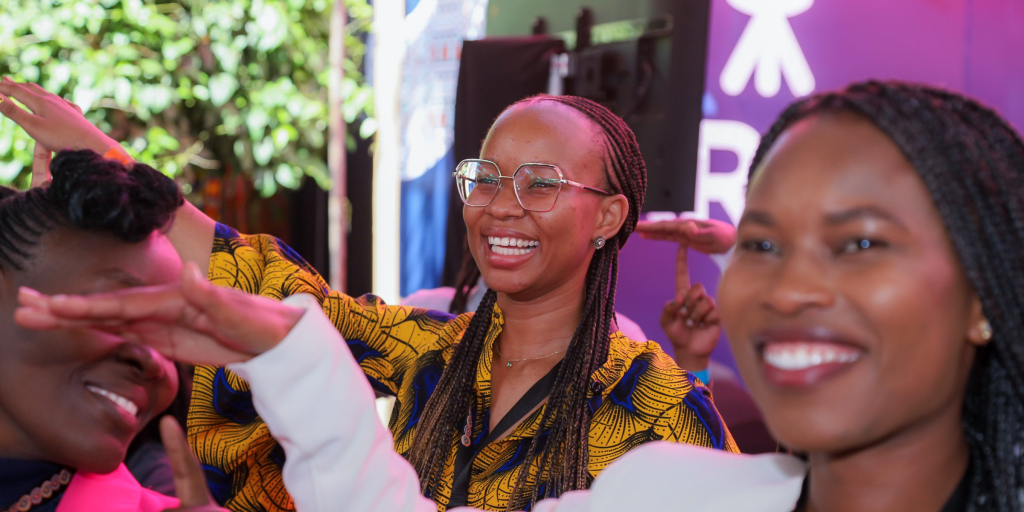Access to information is basic to the democratic way of life, say AU ‘Guidelines’
Electoral processes affect all of us, and put extraordinary pressure on stakeholders who have a responsibility to proactively disclose various categories of information in their possession or control that are necessary for safeguarding the integrity and legitimacy of the electoral process.
In November 2017, a key document which guides the work of the media on the African continent was issued by the African Commission on Human and Peoples’ Rights through its Vice-Chairperson and Special Rapporteur on Freedom of Expression and Access to Information in Africa, Lawrence Murugu Mute.
The Guidelines on Access to Information and Elections in Africa specifically addresses
- authorities responsible for appointing election management bodies
- election management bodies
- political parties and candidates
- law enforcement agencies
- election observers and monitors
- media and online media platform providers
- media regulatory bodies (like the Press Council of South Africa), and
- civil society organisations
Read the Guidelines here.
The right of access to information is guaranteed by Article 9 of the African Charter on Human and Peoples’ Rights (the African Charter), which is an invaluable component of democracy as it goes a long way in facilitating participation in public affairs.
Article 9 states that:
Every individual shall have the right to receive information, and every individual shall have the right to express and disseminate their opinions within the law
The importance of the right of access to information is underpinned by the fact that it is a crosscutting right. It is a right that is necessary for the realisation of other human rights, including the right to participate in government directly or through freely chosen representatives.
The African Charter, to which South Africa is a State party, can be downloaded here.
In 2020, a report, ‘The Proactive Disclosure of Information and Elections in South Africa: An Assessment of South Africa’s Compliance with the Guidelines’, was published by the Centre for Human Rights at the University of Pretoria to evaluate how key stakeholders in the electoral process in South Africa complied with the process outlined in the Guidelines throughout elections in 2019.
The Centre for Human Rights, based at the Faculty of Law, is an internationally recognised university-based institution combining academic excellence and effective activism to advance human rights, particularly in Africa. It aims to contribute to advancing human rights, through education, research and advocacy.
The report incorporated contributions from the South African Human Rights Commission (SAHRC), the Human Sciences Research Council (HSRC), the Electoral Institute for Sustainable Democracy in Africa (EISA) and the Freedom of Expression Institute (FXI).
This is Mute’s Preface to the report:
It is with pleasure that I welcome the first study on compliance with the African Commission on Human and Peoples’ Rights’ Guidelines on Access to Information and Elections in Africa, by a State party to the African Charter.
This report, which was prepared by South African partners, evaluates how key stakeholders in the electoral process in South Africa fared in terms of proactive disclosure of information before, during and after the national and provincial elections, held on 8 May 2019.
When the African Commission adopted the Guidelines in November 2017, it was a landmark development and a clear acknowledgement of the importance of the right of access to information – particularly the obligation of state parties to the African Charter to ensure that all stakeholders involved in electoral processes adhere to their obligations to proactively disclose all critical information, as clearly outlined by the Commission in the Guidelines.
States are required to comply with the standards outlined in these Guidelines to ensure transparency of the entire electoral process.
State parties to the Charter are further encouraged to use these requirements as minimum standards to ensure that all information related to electoral processes are proactively disclosed to enhance both the transparency and integrity of the electoral processes, whilst also strengthening the foundations of democratic practice across the continent, as exemplified by the African Union’s adoption of the African Charter on Democracy, Elections and Governance (ACDEG).
The right of access to information is guaranteed by Article 9 of the African Charter and acknowledged in a number of extant treaties of the African Union, including the ACDEG, the African Charter on the Values and Principles of Public Service and Administration, the African Union Convention on Preventing and Combating Corruption, the African Youth Charter, the Protocol to the African Charter on Human and Peoples’ Rights on the Rights of Women in Africa, and the Protocol to the African Charter on Human and Peoples’ Rights on the Rights of Persons with Disabilities in Africa.
It is further elaborated in several soft law instruments that the African Commission has adopted in support of article 9 of the African Charter, such as the Model Law on Access to Information for Africa, adopted in Banjul, The Gambia, on 23 February 2013, and the Declaration of Principles on Freedom of Expression and Access to Information in Africa that was adopted in Banjul, The Gambia on 5 November 2019.
Access to information is both a stand-alone right and an enabling right for the realisation of various other rights enshrined in the ‘African Charter’, such as the rights to health and education, guaranteed under Articles 16 and 17 respectively, and, in the context of elections and electoral processes, the right of access to information is an enabler to the right to political participation guaranteed by Article 13 of the ‘Charter’
When fully implemented by State parties to the African Charter, the Guidelines are expected to promote transparency and integrity of elections and electoral processes on the continent, thus transforming the electoral landscape in Africa because access to information is not only central to democratic processes, but is indeed also a guarantor of free, fair, credible and transparent elections.
The Guidelines provide guidance to election management bodies, authorities responsible for appointing election management bodies, political parties and candidates, law enforcement agencies, election observers and monitors, media and internet regulatory bodies, media and online media platform providers and civil society organisations in relation to the information they are expected to proactively disclose throughout the electoral cycle.
Electoral transparency through information disclosure enhances public confidence in the electoral process. Thus, it is imperative for States to ensure that measures are adopted to enable public access to all relevant information and indeed nurture a culture of electoral transparency, through ensuring that all stakeholders in the electoral process abide by their obligation to Section 32(1) of the South African Constitution guarantees the right of access to information.
To give effect to this right, the country enacted the Promotion of Access to Information Act (PAIA) of 2000, the first country on the continent to do so.
So far at least 24 African countries have adopted access to information laws.
I would like to commend South Africa for all the measures that were taken to enable the free flow of ideas and information so that citizens could have access to the requisite election-related information – for example, by ensuring continuous internet access during the electoral period.
Internet shutdowns are incompatible with international human rights norms and standards, but have become prevalent in Africa. According to the authorities in the states where they have become prevalent, their actions are justified on considerations of maintaining public order and protecting national security
However, it must be stated that Internet shutdowns violate the right to freedom of expression and access to information and so such actions are contrary to the provisions of article 9(1) of the African Charter. It must be emphasised that access to the Internet enables the public to exercise their right to freedom of expression and access information.
I would also like to commend the Independent Electoral Commission (IEC) and Media Monitoring Africa for taking steps to curb the spread of disinformation during elections through the Real411.org initiative.
This is a digital platform that enabled the public to report digital disinformation, hate speech, incitement to violence and harassment of journalists. Disinformation is a threat to elections and democracy and is now a global challenge.
As the mandate of overseeing PAIA is transitioning from the SAHRC to the recently constituted Information Regulator, I would like to implore the government of South Africa to commit adequate resources to the Information Regulator, to enable it to effectively carry out its mandate and spearhead the reforms to PAIA recommended in this report.
I would also like to commend the ongoing processes regarding disclosure of funding information by political parties.
Proactive disclosure of information is at the heart of the promotion and protection of the right of access to information enshrined in article 9(1) of the Charter, which South Africa, like the other 54 of the 55 Member States of the African Union, has ratified.
Although PAIA has elaborate provisions on implementing the right of access to information, it does not provide for adequate proactive disclosure as defined in the Model Law.
As stated in the recommendations of this report, amendments to PAIA will be required to make it fit for purpose in the digital age and improve on the provisions for proactive disclosure of information, aimed at fostering a culture of information disclosure by public and relevant private bodies without citizens having to struggle to obtain information to exercise their rights.
Furthermore, as information and communications technologies (ICTs) are essential to enabling access to information, I would like to urge the South African government to take steps to ensure that universal access to the internet becomes a reality in this country, in compliance with Principle 37 of the Declaration of Principles on Freedom of Expression and Access to Information in Africa.
I would like to congratulate and extend my gratitude to the Centre for Human Rights and its partners for conducting this research project, the first of its kind after the Guidelines were adopted by the African Commission. It is important work which will assist South Africa as well as other states in their use of the Guidelines.
It is my sincere hope that this kind of research will be replicated in other countries to promote the culture of access to information in the context of elections, with particular emphasis on proactive disclosure of information by all stakeholders involved in the electoral cycle.
As was rightly stated back in 2005 by Mr Abid Hussain, the-then United Nations Special Rapporteur on Freedom of Opinion and Expression, in his report to the United Nations Commission on Human Rights: ‘Freedom would be bereft of all effectiveness, if the people have no access to information.’
Access to information is basic to the democratic way of life. The tendency to withhold information from the people at large is therefore to be strongly checked. Information is essential to democracy, and democratic elections are impossible without accurate and credible information being made available to the public, proactively




